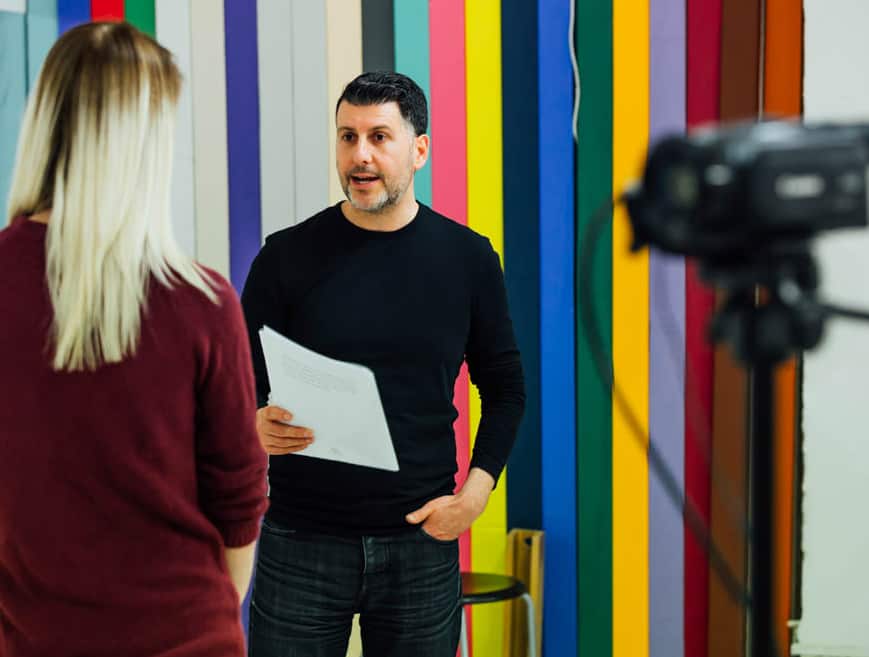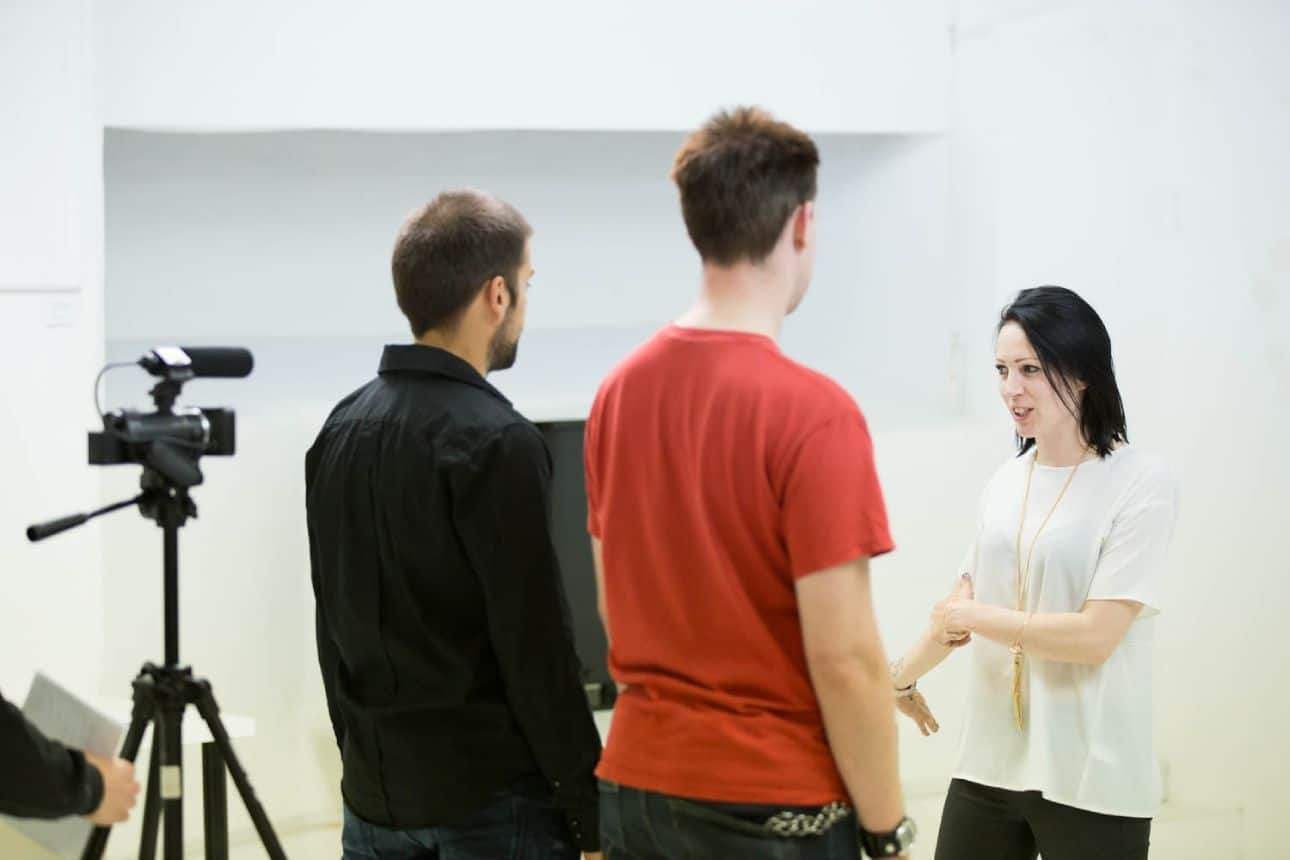The opportunities to be a TV presenter are both varied and plentiful if you get it right. Twenty years ago there were few channels to watch. Presenters were carefully chosen to present the news, front a few feature programmes and to do voice overs for documentaries.
Contrast that with now and the hundreds of channel choices covering every interest. Presenters are in demand, but competition for the jobs is intense. It’s not just about looking the part - presenting is an art and you need to know how to play the cameras and handle the stress on and off the screen.
So here are five tips to get you thinking:

1. Be Natural
Presenting to camera is very different to standing on a stage and presenting to an audience, it’s all about intimacy! It’s almost like having a conversation with someone. To present well you need to talk to the camera like it’s a friend.
2. Don't Shout
The best presenters speak to camera, they don’t shout! Bad presenters project too much. This just comes across as screaming and faking personality. Be natural and speak clearly with enthusiasm, but be intimate.
3. Timing
Getting the balance right between being natural and not being too laid back is a skill that demands pacing the delivery, ensuring its delivered in a varied and interesting way; pausing to make key points, using the eyes to smile and setting the right tone.
4. Handling Rejection
Like acting, presenting can be stressful. Beware of TV Executives appearing to offer you a great show and proclaiming that you are the best. It's likely that it all goes quiet and you never hear from them again. Starting out is hard. You need to persuade someone you can do the job like no one else and that your natural talent and likability will deliver audience ratings. Being active and having a strong following on social media has also become an important factor - with Instagram currently leading the way.
5. Showreel
A short tape showing how you can operate in a studio and on location is vital. However, you have to constantly adapt this so it squares up with the presenting job you’re going for. It sounds obvious, but if it’s a nature show you should include some nature presenting, and if it’s sports make sure that’s at the top of the tape. I’m a great believer in actually shooting material especially for a show; always tailor your showreel to fit the job.

Being a TV presenter is a bit like being a professional footballer, there are the Premiership players and those making a living in the next division. It’s well documented that the star presenters on television get anything from £500,000 upwards a year, however, for every one of them there are hundreds of TV presenters making a living and not a fortune. Then there are also the ‘expert’ presenters from Universities and Academies and other specialists in Science, Arts, and Music who have a day job and present the occasional series.
Rarely can anyone just walk in front of a camera and get it right first time. You need training on how to handle the technology, coping with a producer and director talking to you via an earpiece, handling interviews, reading autocue, and looking calm and collected whilst chaos is all around you. It’s the presenter who anchors the thing together, it’s your job to ensure the show goes on. We are here to help get you started.
Start Training to be a TV Presenter

Richard Swallow is a City Academy TV Presenting tutor - City Academy run adult classes across a range of performing arts and life skills subjects:
- All classes
- TV Presenting
- Public Speaking
- Storytelling
- Screen Acting




